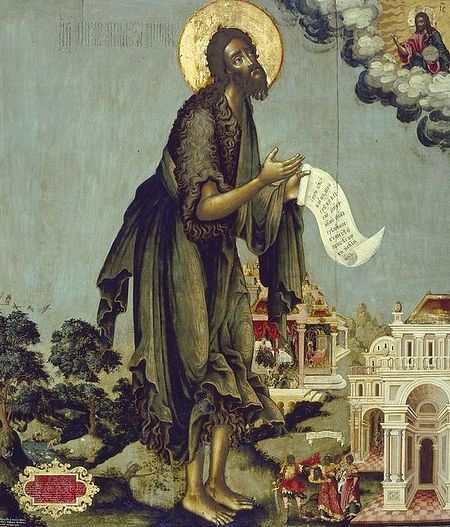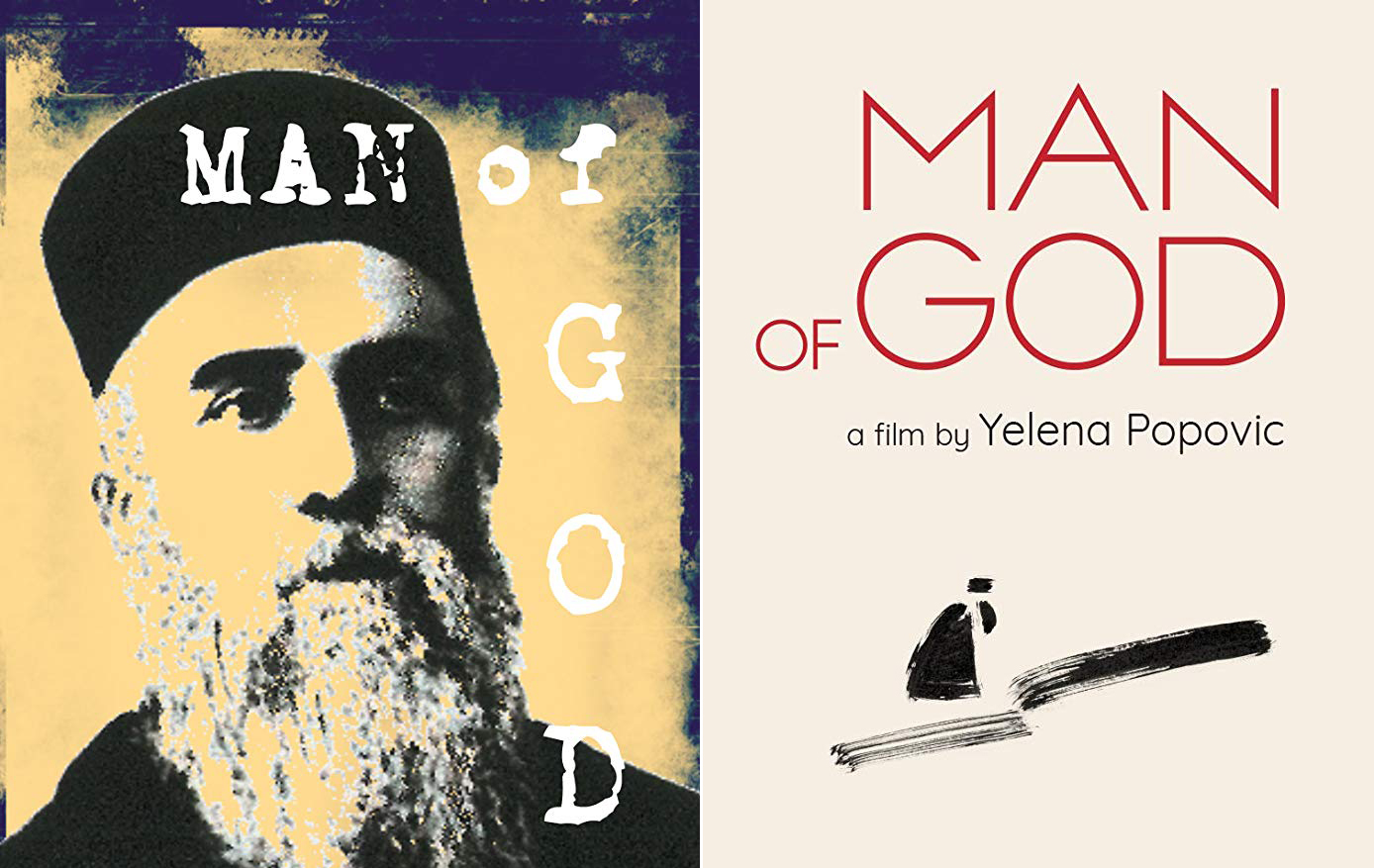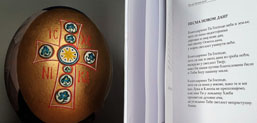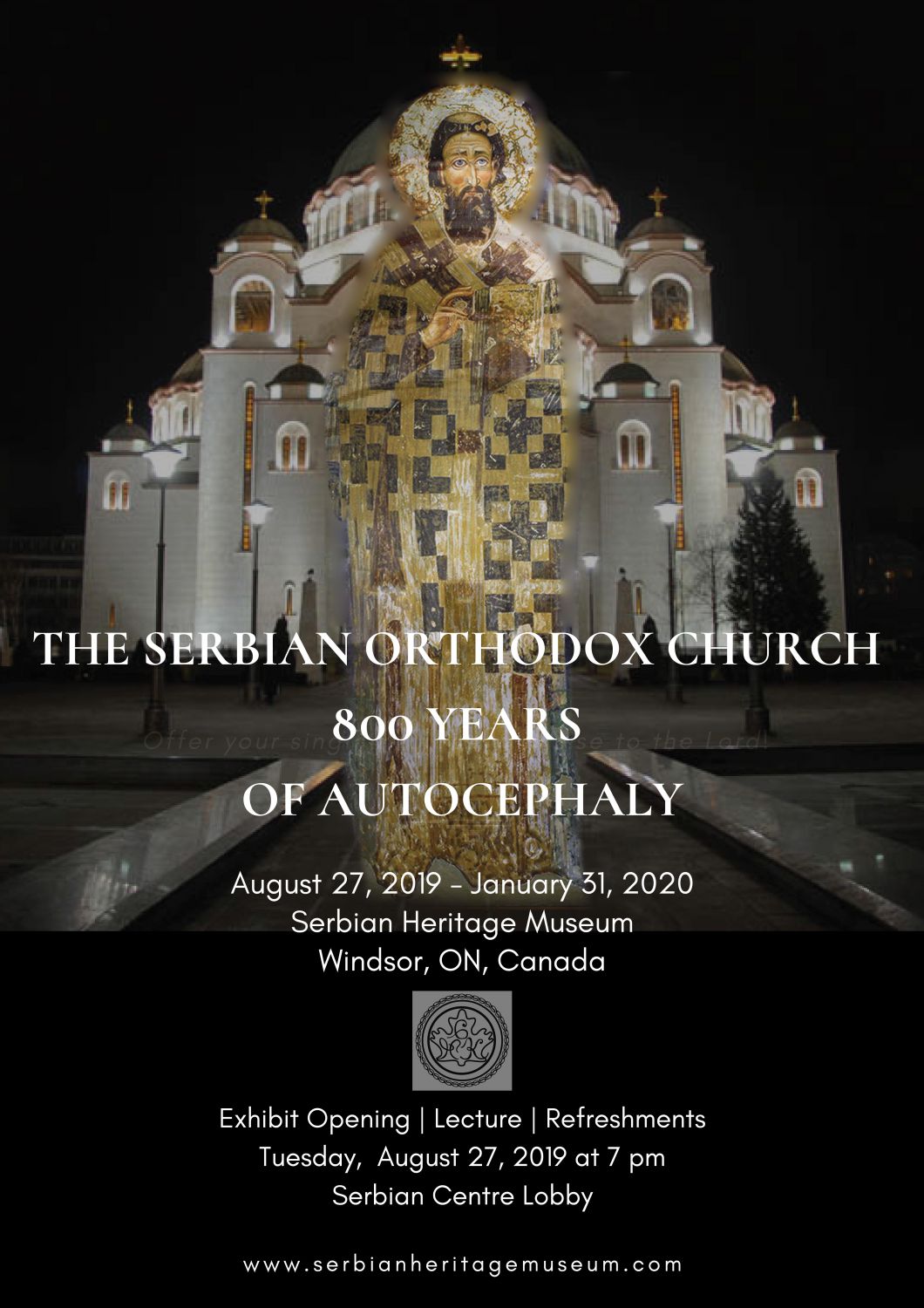Culture
Help Bahamas!
16. September 2019 - 9:20 Dear parishioners, like you know, people in the Bahamas suffered from this hurricane that we, thanks to God avoided. Our prayers are with them. Our church St. Simeon has joined the action of collecting help for the people. We know what it’s like when your home has been destroyed and how every helping hand is welcomed. That’s why we’re asking you to bring some things from the list and join the action. When enough stuff has been gathered, we will send it to those suffering. Thank you and God bless you.
Dear parishioners, like you know, people in the Bahamas suffered from this hurricane that we, thanks to God avoided. Our prayers are with them. Our church St. Simeon has joined the action of collecting help for the people. We know what it’s like when your home has been destroyed and how every helping hand is welcomed. That’s why we’re asking you to bring some things from the list and join the action. When enough stuff has been gathered, we will send it to those suffering. Thank you and God bless you.
The Beheading of the Holy Prophet and Forerunner John the Baptist
10. September 2019 - 13:01 In the Name of the Father and of the Son and of the Holy Spirit
In the Name of the Father and of the Son and of the Holy Spirit
Why does the Church give such veneration to St. John the Baptist, even fixing a strict fast day in his honour? Here are ten reasons:
1. Our Lord Himself said that St. John was the greatest prophet “among those born of women” (Luke 7, 28). Some hearing these words are surprised. They ask: Surely, Christ Himself is the greatest man born of women? However, Christ was not born of a woman (i.e. a married female), he was born of a Virgin. Therefore, in obedience to our Lords words, that St. John is the greatest born of women, the Church duly honors him. In fact, there are no fewer than six feasts of St. John in the Church Year. The first is his Conception on September 23/October 6. Then comes his commemoration on January 7/20, the day after the Feast of the Baptism of Christ. The third is the Second Finding of his head on February 24/March 9. His next feast is the Third Finding of his head on May 25/June 7. The fifth is his Birth, or Nativity, on June 24/July 7, and finally today’s feast, the last in the Church Year, his Beheading on August 29/September 11.
Hieromartyr Irenaeus, Bishop of Lyons
5. September 2019 - 12:02 The Hieromartyr Irenaeus, Bishop of Lyons, was born in the year 130 in the city of Smyrna (Asia Minor). He received there the finest education, studying poetics, philosophy, rhetoric, and the rest of the classical sciences considered necessary for a young man of the world.
The Hieromartyr Irenaeus, Bishop of Lyons, was born in the year 130 in the city of Smyrna (Asia Minor). He received there the finest education, studying poetics, philosophy, rhetoric, and the rest of the classical sciences considered necessary for a young man of the world.
His guide in the truths of the Christian Faith was a disciple of the Apostle John the Theologian, Saint Polycarp of Smyrna (February 23). Saint Polycarp baptized the youth, and afterwards ordained him presbyter and sent him to a city in Gaul then named Lugdunum [the present day Lyons in France] to the dying bishop Pothinus.
A commission was soon entrusted to Saint Irenaeus. He was to deliver a letter from the confessors of Lugdunum to the holy Bishop Eleutherius of Rome (177-190). While he was away, all the known Christians were thrown into prison. After the martyric death of Bishop Pothinus, Saint Irenaeus was chosen a year later (in 178) as Bishop of Lugdunum. “During this time,” Saint Gregory of Tours (November 17) writes concerning him, “by his preaching he transformed all Lugdunum into a Christian city!”
Movie depicting tribulations of St Nektarios of Aegina coming to cinemas across Greece soon
15. August 2019 - 10:38 Movie theatres across Greece will be showing a new film ‘Man of God’ depicting the life and tribulations of Saint Nektarios of Aegina. Based on a true story, ‘Man of God’ will highlight the inspiring and struggling life of Saint Nektarios, played by leading actor Aris Servetalis (42). ‘Exiled unjustly, convicted without trial, slandered without cause, yet his love for God and his fellow men conquered all. Man of God depicts the tribulations of Saint Nektarios of Aegina, as he bears the unjust hatred of his enemies, while preaching the Word of God and wishing good to everyone.’
Movie theatres across Greece will be showing a new film ‘Man of God’ depicting the life and tribulations of Saint Nektarios of Aegina. Based on a true story, ‘Man of God’ will highlight the inspiring and struggling life of Saint Nektarios, played by leading actor Aris Servetalis (42). ‘Exiled unjustly, convicted without trial, slandered without cause, yet his love for God and his fellow men conquered all. Man of God depicts the tribulations of Saint Nektarios of Aegina, as he bears the unjust hatred of his enemies, while preaching the Word of God and wishing good to everyone.’
Bishop Fotijе: A Hymn to the Eighth Day
13. August 2019 - 12:33The Publishing House of the Diocese of Zvornik-Tuzla “Sinai” has published a collection of poems under a general title “A Hymn to the Eighth Day” written by Serbian Bishop of Bijeljina and Zvornik-Tuzla Fotije.
The collection contains 136 poems depicting blessings and gravities of human existence, starting from the praise to the One Who is and proceeding to reflecting on illnesses and passions we are subject to, from the verses about the fathers who gave us lessons of life and going further to exhortations to the diocesan faithful who are thirsting for seeing God in the face of man, from the plagues of troubled times in which the harvest suffers to the joy of the nature that surrounds us, from reminiscences of student days to the memory of the Kingdom to come.




